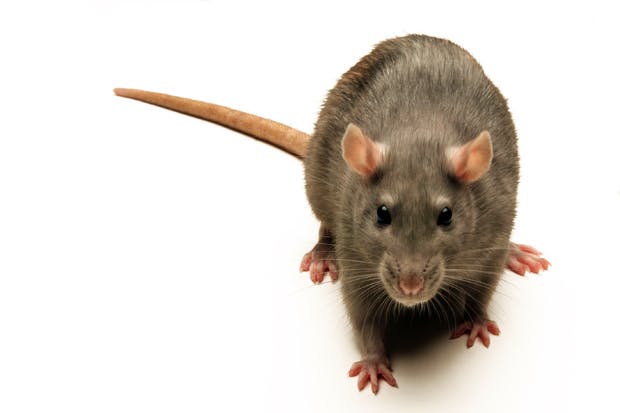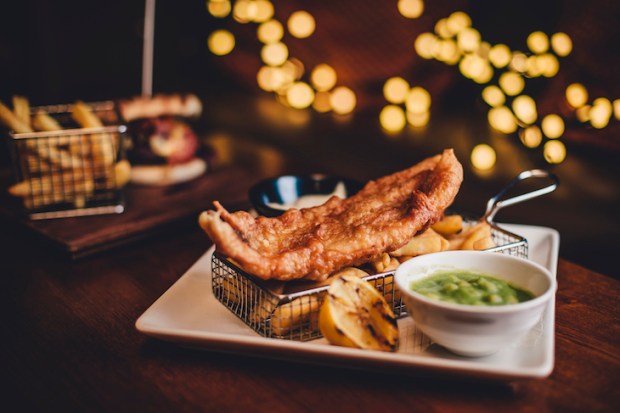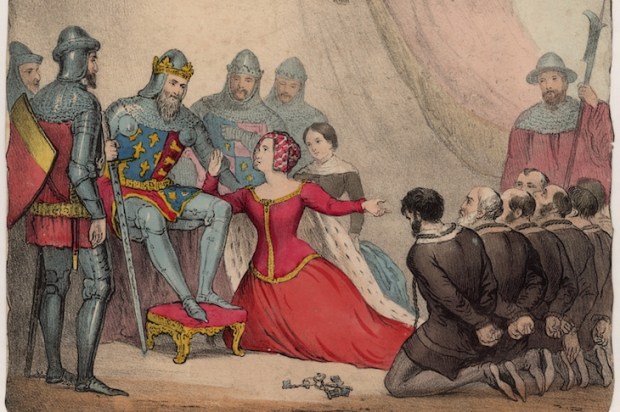My mother is a bore magnet. They travel from miles around to sit in the chair opposite hers and tell her every last detail of their lives in a protracted monologue and then they leave. It’s like a surgery. One after another they appear at the door, bursting with a narrative of their incredible lives. If they can’t get there in person, they ring her up and talk about themselves on the phone for hours on end. I suppose it must be a kind of innocence to find the minutiae of your daily life so consistently remarkable that you simply must tell it to a third party. Perhaps I should envy them.
I walked in the open front door the other day to find my mother and one of her client bores standing in the hallway. They had gone into the kitchen to make a pot of tea, found there a female pheasant and two adolescent chicks, and retreated to the hall. Even the startling presence in the kitchen of wild pheasants hadn’t deflected my mother’s visitor from her tale about her latest battle with the customer-services department of a small manufacturer of pill-organisers. My mother was leaning to the side and peering tentatively around the kitchen door and her visitor wasn’t missing an opportunity of speaking directly into her uppermost ear and telling it what she had said to him, and what he had said to her, when she finally got through on Monday afternoon. Or was it Tuesday? Hang on a minute. No, it was Monday. It was definitely Monday because that was the day she finally had her appointment through from the gynaecologist about her prolapse. Has she mentioned that it has all gone south again? Indeed she has. Basically, it’s like Third Ypres down there.
The mother pheasant had taken refuge in the house, my mother said, to hide from the crows, who were after her chicks. ‘Look! See them!’ she said. ‘Beasts.’ I peered through the kitchen window. Three crows, disguising their murderous intent with a kind of arrogant nonchalance, were riding the branches of the holly tree. I went outside and pelted them with rotten windfall apples as they flew off, then I came back inside and chased the pheasant chicks one at a time round and round the kitchen table. In a dreadful panic, the mother pheasant decided that discretion was the better part of valour and escaped through the open kitchen window, smashing a vase on the sill as she went. My mother and her visitor stayed to witness the spectacle of the chase, while the visitor continued to relate her customer-services story into my mother’s ear as a rival attraction. Once captured, the youngsters sat quietly in my arms. As I bore the captives out of the room, I paused so that my mother and her visitor might have a closer look at them. My mother reached out a hand to smooth their feathers. Her visitor followed suit grudgingly, without interrupting her detailed narrative of what she said to the customer-services manager, and how she heard him say to someone in the background, ‘It’s her again.’ And she said to him, ‘I heard that.’ And he said to her, ‘Heard what?’ And so on and so forth, the sympathies of all those within earshot of this narrative lying not with her, but entirely and fundamentally with the customer-services manager.
My mother is rarely, as far as I can tell, invited to offer news of herself, indeed to speak at all. But if by some mischance she does say anything, it will remind the visitor of something that happened to her, and this, too, will be related in detail and at life-threatening length. She never gets to tell them, for example, how nowadays the tablets she is taking for her early-stage Parkinson’s disease give her strange hallucinations in the night-time. They are always the same. There are two. One is that there is a giant rat in the bed with her. This is terrifying. The other is that there are people in her bedroom. These she senses rather than visualises. She has no idea who they are, but because she also senses that these people are kindly disposed towards her she doesn’t mind them. Another odd result of the tablets is that she sometimes fails to recognise familiar objects. The other day it was a slug in the porch. She had to call for help. ‘I just couldn’t work out what it was,’ she explained afterwards. ‘I was frightened it was going to fly up at me!’
So, if these visitors would only interrupt their monologues for a moment or two and ask my mother about herself, they would be entertained and amused. But their egotism has such a grip on them that it’s a kind of insanity, and they never do.
Got something to add? Join the discussion and comment below.
Get 10 issues for just $10
Subscribe to The Spectator Australia today for the next 10 magazine issues, plus full online access, for just $10.















Comments
Don't miss out
Join the conversation with other Spectator Australia readers. Subscribe to leave a comment.
SUBSCRIBEAlready a subscriber? Log in